
The winner of several important competitions, including the Franz Liszt International Piano Competition in Budapest in 2011, and the similarly named International Franz Liszt Piano Competition in Utrecht in 2017, the British pianist now enjoys a high-ranking career in the world’s major concert halls.
- Joseph Haydn (1732-1809). Piano Sonata in G HXVI/40 Allegretto innocente – Presto
- Ludwig van Beethoven (1770-1827). Piano Sonata No. 21 in C Op. 53 ‘Waldstein Allegro con brio-Introduzione Adagio molto -Rondo Allegretto moderato -Prestissimo
- INTERVAL
- Franz Liszt (1811-1886)
- Nuages gris S199
- Piano Sonata in B minor S178
After a truly epic performance of the Liszt Sonata peace reigned as he remembered his teacher Leon Fleischer,who had been in the front row for his London debut many years ago,bringing this extraordinary recital to a sublime close.
It was a magical performance of ‘Sleep may safely graze’ dedicated to his teacher at Curtis Institute who passed away last year.
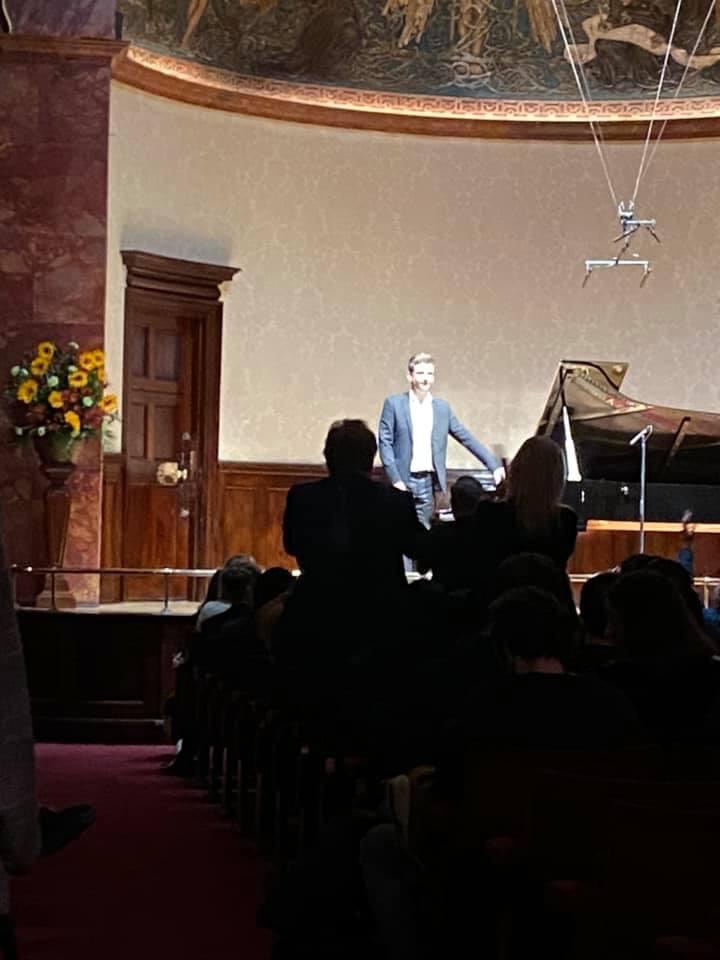
He is the only British pianist to have won the two major International Liszt competitions in Budapest and in Utrecht.
It was fitting that he should ignite the Wigmore public with a performance of the B minor Sonata of passion,seduction and drama.
It brought the audience spontaneously to its feet as the aching minutes of silence that greeted the final three chords left us breathless and astonished by the drama that we had witnessed in the hands of this thirty year old virtuoso.
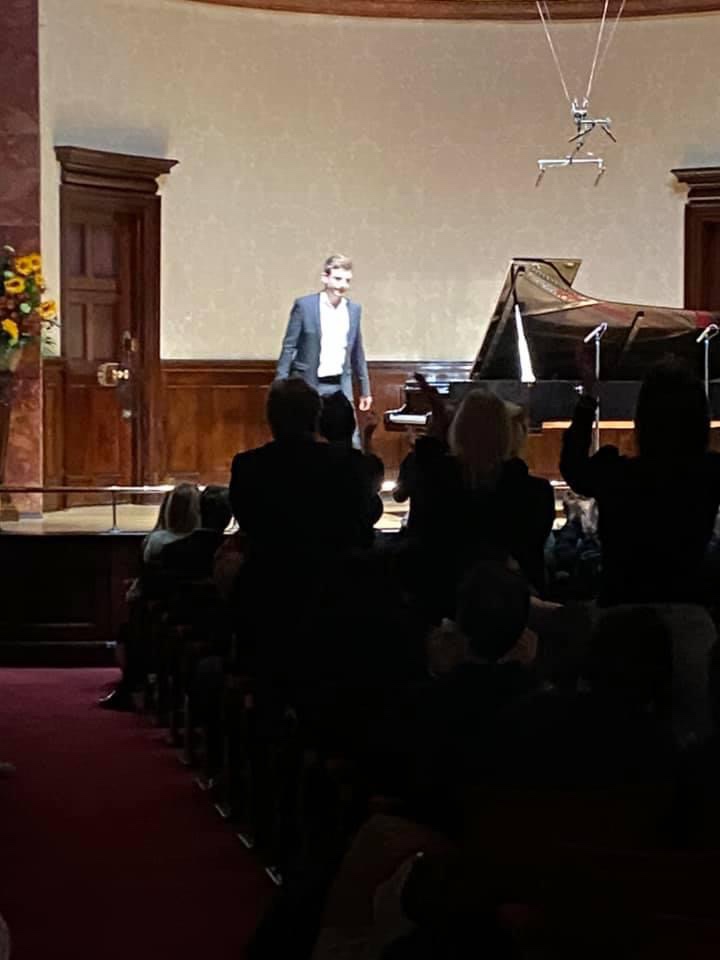
There had been ferment too with a performance of the Waldstein Sonata of relentless driving energy.
From the first to the last note it was given the same almost animal frenzy that I remember from Serkin.
This,after all,is the ferment that was to explode in the Appassionata before disintegrating in the Hammerklavier and Beethoven coming to peace with the world in op 110 before finding paradise with the final ethereal sounds of the Arietta of op 111.
A seemingly ‘innocente’ Haydn sonata in G Hob XV1/40 was not at all innocent as a whole world of opera opened up with characters coming and going on stage in a performance of such character that the Presto finale seemed to be straight from an Opera Buffo.
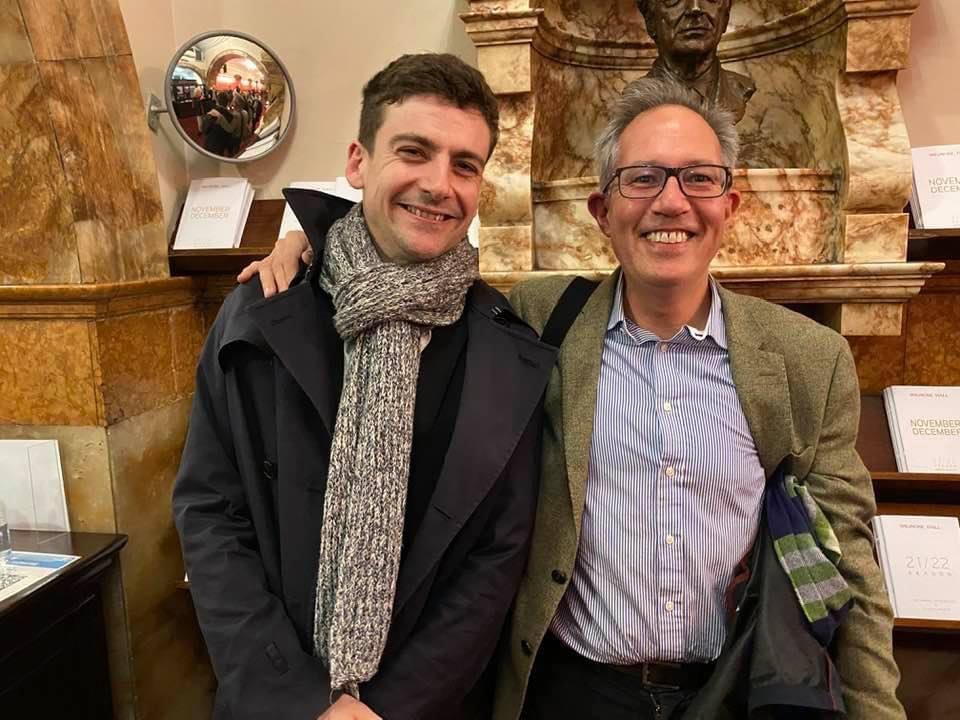
There was a careful setting of the scene too with Liszt’s visionary Nuages Gris for the menacing opening of the Liszt Sonata that was restored to its true place as the pinnacle of the Romantic repertoire.
The peace that Liszt finds with a coda of such aching significance was followed by a similar piece to Nuages Gris from the timeless world of Arvo Paart.
In fact it was with supreme intelligence that the programme had a true architectural sense from the curtain rising to the sublime closing with Bach.
There was fun too with a ‘Minute’ waltz of such grace and subtle charm that I could swear clocked in at only 55 seconds!
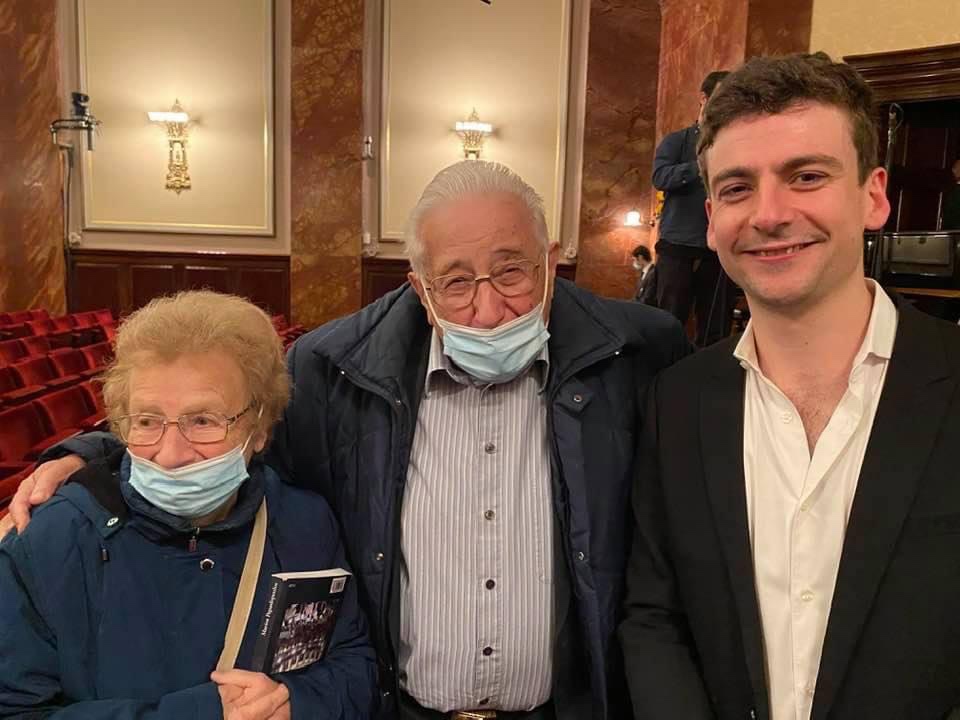
The opening of the Waldstein was a mere menacing vibration leading to the luminosity of the mellifluous second subject.No slowing down as he followed scrupulously Beethoven’s indications as you would expect from a disciple of Leon Fleischer.The animal stamping of chords brought the exposition to fever pitch before a development with startling washes of colour,the motor started up again bit by bit as we were literally caterpulted into the recapitulation .There were startling contrast of dynamics with sudden outbursts and the opening theme suddenly appearing in the left hand with swirls of notes above.
The slow movement Beethoven marked as an introduction to the Rondo having consigned his original thoughts to his now independent Andante Favori.
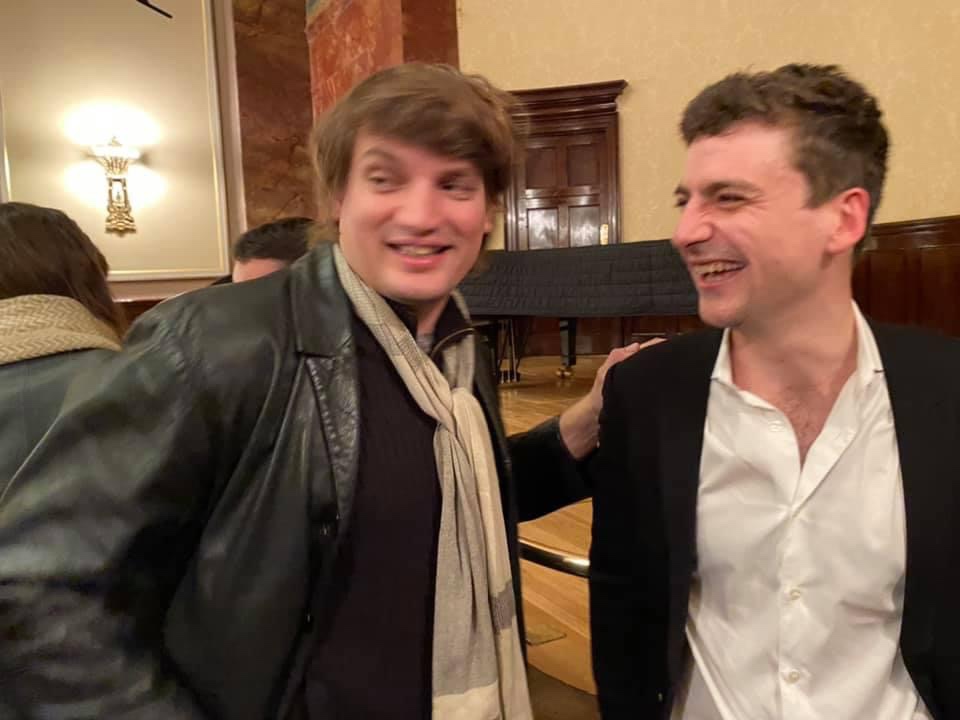
Adagio molto was exactly that, in this young musicians hands.It was played with a completely different colour from the Allegro con brio of the first movement with the interruption of baritone melody entering the scene and drifting like an echo across the keyboard.
Gradually arriving to the magical ‘G’ that rings out heralding the Rondo last movement bursting into melody on a waft of subdued sounds that Beethoven shrouds in mysterious clouds of pedal.

Episodes of ever more virtuosistic passages disintegrating to the calm of long held chords played with ravishing pianissimi before the gong of ‘C’ is struck and the pace quickens to Prestissimo.
Played with startling virtuosity and drive but with exemplary colour and a velocity that even allowed him to play the glissandi scales without having to lick his fingers like Serkin.Even in this helter skekter turmoil there was the sublime beauty of the trill of vibrating sounds on which the rondo appears for a last time like a music box before the final desperate explosion of chords

The mighty Liszt Sonata was give a young man’s performance in which the total commitment and his self identification touched the audience in an extraordinary way.
An all or nothing performance of heroic proportions.
It certainly was not the ‘blind noise’ that Clara Schumann described when she received the manuscript of the Sonata with the dedication from Liszt to her already infirmed husband.
It was full of wondrous sounds and theatrical gestures.Reaching sublime heights in the Andante Sostenuto that after the magic of the ‘dolcissimo con intimo sentimento’ blazing naked passion was allowed full reign before dissolving to a mere whisper and the return of the opening menacing dark scales.
A fugato of breathtaking speed was played with a clarity as its relentless rhythmic urgency erupted into the recapitulation.
There was amazing technical prowess in the octave passages but also scintillating streams of gold with scales that shone like jewels as they accompanied the cantando espressivo of Liszt’s ‘Margherita’ theme.Sir John Barbirolli defended Jaqueline du Pré’s unbridled passion saying ‘but if you do not play with passion when you are young ,what do you pare off in old age?’
Indeed it was the same passion that we heard today but we should not forget that Liszt was also editor of the Beethoven sonatas.His genius knew exactly what he was doing when he wrote very meticulous indications in his own Sonata.Leslie Howard has edited the new Urtext edition of the Sonata and I am sure this young artist will observe them carefully as he lives with this masterpiece during the long International career that is fast opening up for him.We await his recording of the Sonata together with the two concerti that is for imminent release following the five star reviews he has received for his sumptuous recording of Russian Ballet Music.


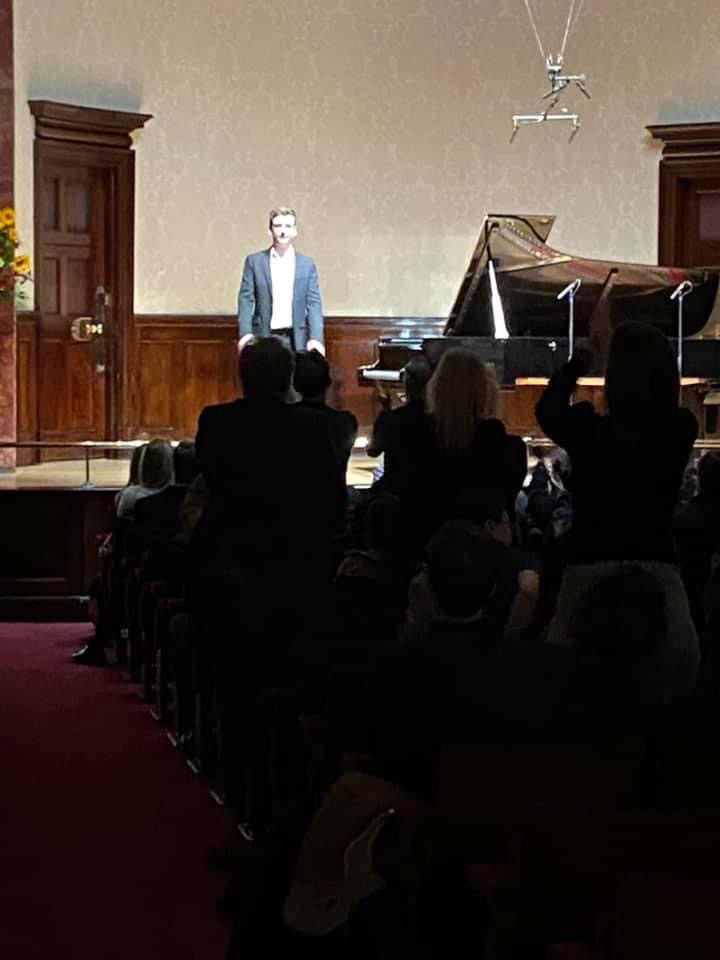
Dear Bryce, We’re you here too? Matthew who lives in my house told me afterwards that he had seen you in the bathroom ? Sure I would have seen you as the gall was far from full. I will telephone you as soon as I gave caught my breath from a round of workmen in the house and pianists sprouting from ever corner .
"Mi piace""Mi piace"